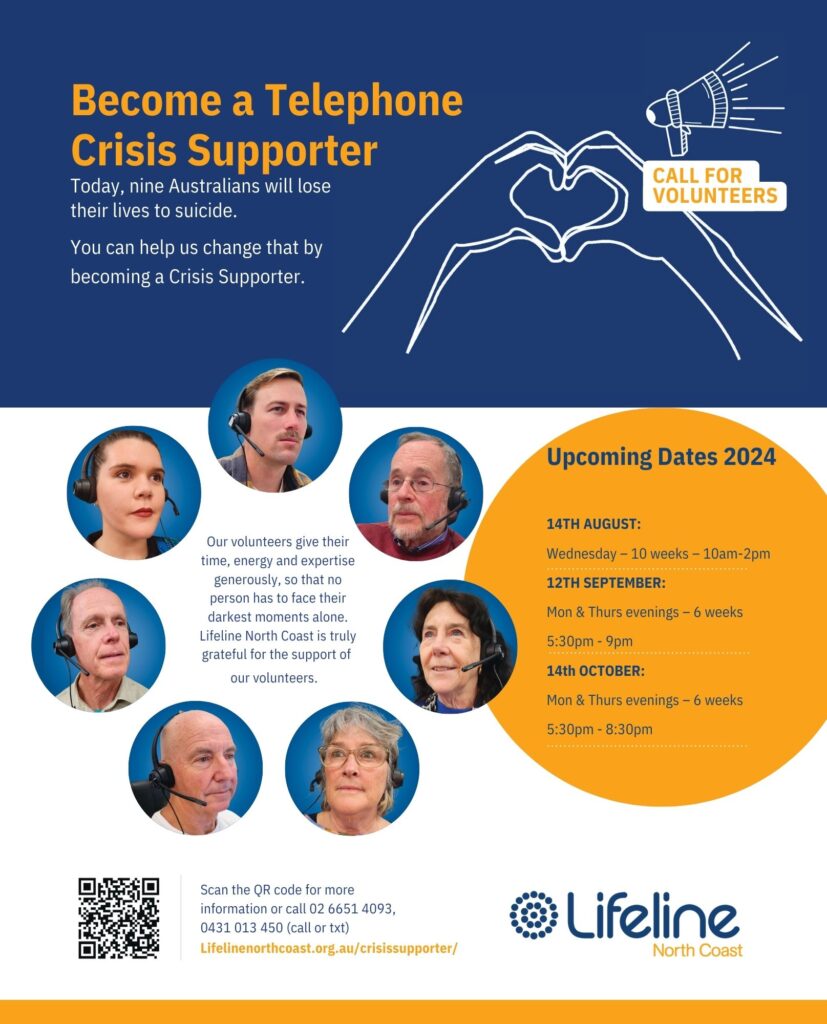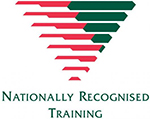Stage 1 – Blended learning (e-learning + face-to-face)
Stage 2 – Student Placement
Stage 3 – Internship

Purpose
Volunteers provide one-off crisis support over the phone to people who could benefit from immediate and short-term assistance to cope with crisis or distress.
Lifeline North Coast delivers the training for CHCSS00113 Crisis Support Skill Set qualification on behalf of Lifeline Australia RTO 88036.
Our Crisis Supporter Workplace Training is a Nationally Recognised Training course which is based on adult learning principles and experiential learning.
The Crisis Supporter Workplace Training is designed to equip students with the skills and knowledge they require to undertake the crisis supporter role.
Our next volunteer training intake is open and accepting applications – please check the eligibility criteria and then use the form below to submit your expression of interest.
Training
Stage 1 – Blended learning (e-learning + face-to-face)
Stage 2 – Student Placement
Stage 3 – Internship
The training takes place over 12 months. Successful completion results in Accreditation as a Lifeline Crisis Supporter and obtaining a nationally recognised Statement of Attainment in:

Requirements
Remote shifts available, live in LGA of Clarence Valley, Lower Clarence Valley, Coffs Harbour, Bellingen Shire, Nambucca Valley
Be over the age of 18 and an Australian/New Zealand citizen or have a valid visa with no study restrictions
Police Check and Working with Children or willingness to obtain.
Ability to commit 4 hrs volunteering per fortnight
Centre Location
Lifeline North Coast (NSW)
2/115 West Hight St.Coffs Harbour NSW 2450
Phone: 02 6651 4093
Complete the form and you will be directed to the Video Information Session